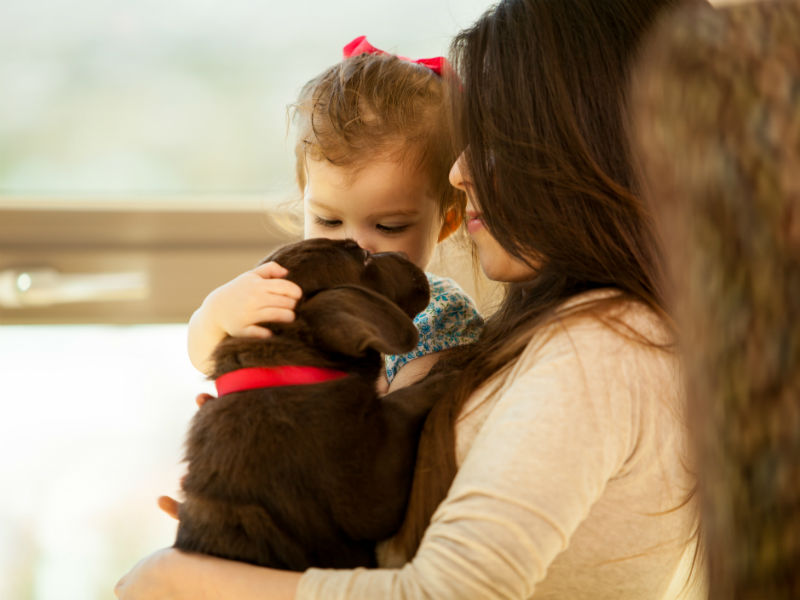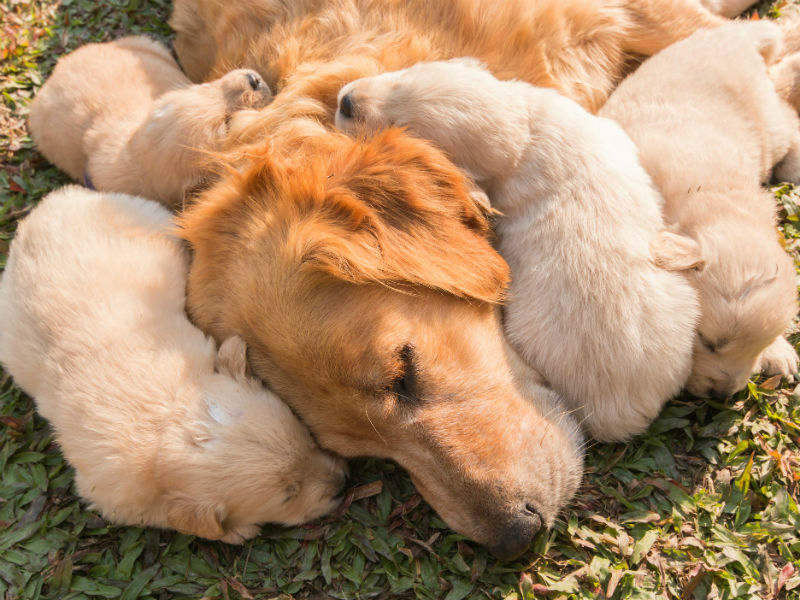Imagine, if you can, being a little baby, cared for and safe with your parents and siblings. Then imagine being abruptly removed from everything you know and plopped down in a new place, with new people, new sounds, smells, and sights. Sounds pretty scary, doesn’t it? That’s how a new puppy feels when you bring him home for the first time.
Most responsible breeders and experts advise that a puppy should not be separated from his mother until he’s at least eight weeks old. In the early weeks of his life, he’s completely dependent on his mother. During the next three-to-eight weeks, he learns social skills from his mother and his littermates. He learns where he fits in the pack and starts to navigate the world around him. He sleeps snuggled up with his siblings and mother and, as a pack animal, he’s hardwired to remain close to them. It makes sense from an evolutionary standpoint — his very survival in the “wild” depends on staying close to the pack. So, when you bring your much-anticipated puppy home, he’s leaving the only family he’s ever known.
What To Expect In the Early Days With Your Puppy
You can almost count on some typical separation behaviors from your puppy and, once you understand these behaviors, you’ll find them much easier to deal with.

- He may cry when you’re out of sight, and follow you everywhere you go.
- There will almost certainly be some howling, barking or crying when you put him in his crate.
- Loud noises, like the vacuum cleaner, doorbell, or even raised voices, may frighten him.
- He can be restless or frightened at night and have trouble falling asleep.
- He may want to be picked up and held constantly.
This is normal puppy behavior, and how you handle it will affect your puppy’s adjustment and integration into the household. All it really takes is patience, understanding, and consistency.

New Puppy Tips Will Get You On Your Way:
- For the first few days, keep everything calm and mellow. No matter how excited everyone is to finally have their new puppy, being deluged with noise and mayhem will not help him settle in.
- Make sure he gets plenty of attention from his new family. Keep him involved in the household. A note of caution, though — teach young children how to handle the tiny new family member, and spend time the first few days supervising their interactions with the puppy. If you have young children, you may want to take a look at a list of breeds that are good with kids.
- Set up a routine. Be consistent with feeding, walks, potty breaks, and the use of the crate. Dogs thrive on routine, and this will help your puppy adjust.
- Decide on a place for his crate where he won’t feel isolated and alone. Many owners put the crate in their bedroom, where the puppy can feel close to his new family. The sound of your voice and some petting may help him feel secure. But do expect some whining or barking before he settles himself down.
- There are a few time-tested methods you can try with a puppy that can’t settle down at night. Wrap a hot water bottle in a blanket or soft towel and place it in the crate. This reminds the puppy of his mother and siblings. Some owners take an old-fashioned, ticking clock and put it near the puppy’s crate. The sound simulates the mother’s heartbeat, helping him to settle.
Most of all be gentle and patient. The frequent whining, howling, and barking or having the puppy constantly underfoot may be trying, but keep in mind that your new puppy has just been separated from the safety and security of everything he’s ever known. Being nervous after leaving his mother is perfectly natural. Contact and attention from you and an established routine will help him adjust more easily to life with his new family.



